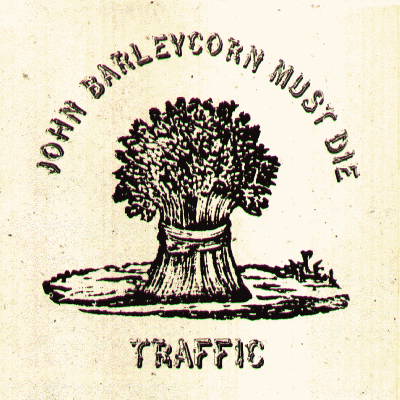 |
From the Vault...
07/22/2001
#743 |

|
info
Traffic
"John Barleycorn Must Die"
© Island Records
Year of Release: 1970
Rating:



|
track listing
|
Glad
Freedom Rider
Empty Pages
Stranger To Himself
John Barleycorn
Every Mother's Son
|
WSVNRadio Archives
Traffic related sites:
|
|
|
Traffic
"John Barleycorn Must Die"
Traffic was the band that placed Steve Winwood on the map. Winwood had
been with the Spencer Davis Group before Traffic. He was 16 years old when he
placed his vocals for Davis' most famous hit, "Gimme Some Lovin'"
Winwood would later form Traffic, as their 1970 release John Barleycorn Must
Die, establishes the band mixing such musical styles as Rock and Jazz.
And Barleycorn is a classic; it's one of Traffic's finest moments.
One thing that surprised me, was that the leadoff track, "Glad,"
was performed by Traffic. Used to their Rock style, it's amazing how certain
rock acts take a dip into other sources of music not necessarily identical to
their common true sound. (The same goes with Frank Zappa, when he recorded
Hot Rats, and later albums, experimenting with Jazz, and even Classical
music.)
"Glad" is close to 7-minutes, (actually, the shortest song on this
release is just short of 5 minutes). At first when I heard "Glad,"
I thought it was similar to Ramsey Lewis' "The In Crowd," with its
jazz-inspired piano. "Freedom Rider" has the common Rock sound of
Winwood and Traffic, even though it does a just a slight dip of Jazz, as in
"Glad," this time with jazz inspired horns, and Jethro Tull-like flute.
Having a more Rock sound is heard in "Empty Pages," as this song is
easily recognized with Winwood's voice, and Traffic's usual rock style. Yet
alone, it does feature a little jazz-tinged piano solo by Winwood. Both
"Empty Pages" and "Stranger To Himself" musical style is compared
to another band Winwood was just previously in before the release of John
Barleycorn Must Die: Blind Faith with Eric Clapton (1969).
"John Barleycorn" has a more pleasant sound, with its accoustic
guitar, and can easily be compared to the music of Crosby, Stills Nash.
"Every Mother's Son" is definitely a rock number, featuring Winwood's
piano as heard in what would be a future album to come -- The Low Spark of
High-Heeled Boys.
Ramsey Lewis Jazz and the common Rock sound heard previously in Blind
Faith best describes Traffic's John Barleycorn Must Die. Also defined
on progressive rock radio, Traffic has always been heard on FM AOR stations.
The songs heard here are long, and would continue in this fashion on future
releases, such as The Low Spark of High-Heeled Boys and Shoot Out
at the Factory. Winwood was experimenting with Jazz and Soul, and Traffic's
post 1970 releases featured more on the Jazz side, than his most successful
solo albums, where he would mix pop rock ("Valerie" and "Higher
Love" as examples) and his #1 soul/r&b hit "Roll With It".
John Barleycorn Must Die is a definite Classic Rock album.
Despite the long lengths of practically each song, it defines Rock in a
different taste, blending FM Rock with Jazz. Definitely interesting, never
boring, Traffic's music will appeal to any Rock or Jazz fan.
© WSVNRadio.net. All rights reserved.
Review or any portion may not be reproduced
without written permission. Cover art is the
intellectual property of
Island Records
and is used for reference purposes only.
|
|





